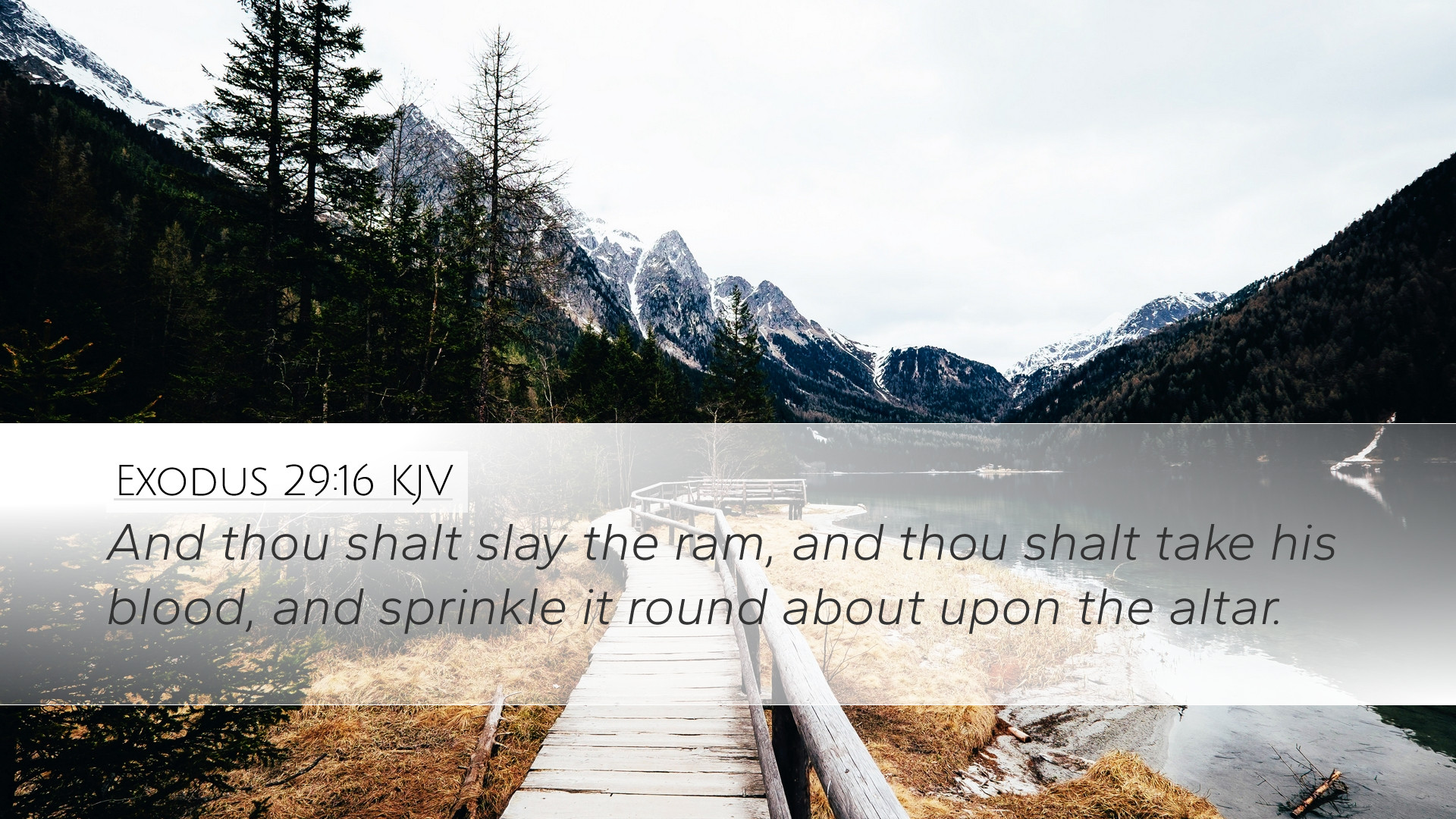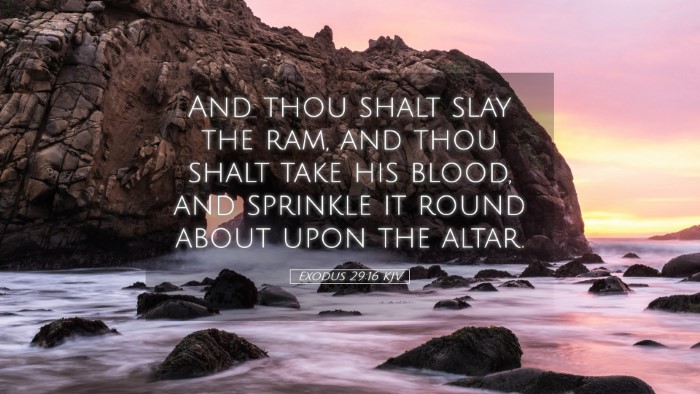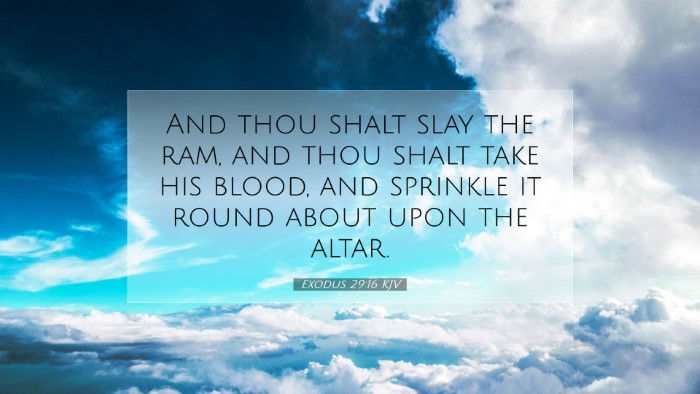Commentary on Exodus 29:16
Verse: "And you shall slay the ram, and you shall take its blood and throw it against the altar on every side."
Introduction
The sacrificial system instituted in the book of Exodus serves as a foundational element of both the Old Testament and the theological understanding of atonement within Christian doctrine. Exodus 29:16 is central to the consecration of the Aaronic priesthood, symbolizing the seriousness of sin and the necessity of blood for atonement. This commentary will synergize insights from esteemed public domain scholars such as Matthew Henry, Albert Barnes, and Adam Clarke.
Contextual Background
Exodus 29 details the consecration of Aaron and his sons, which is part of the broader narrative of God's covenant with Israel. The chapter outlines specific rituals, including the sacrifice of rams, that highlight God's holiness and the need for purification among His people. The rites conducted are not mere ceremonial acts; they are deeply imbued with spiritual significance.
Theological Significance of the Sacrifice
The act of slaying the ram and the subsequent pouring of its blood onto the altar signifies several key theological concepts:
- Atonement: Matthew Henry notes that blood represents life and the transferring of guilt. The ram's blood serves as a substitute, allowing the priests to undertake their sacred duties, thereby exemplifying the need for intervention between God and humanity.
- Consecration: The ritual underscores the sanctity of the priesthood. Albert Barnes emphasizes that the act of sprinkling blood signifies the consecration of the altar itself and marks it as an instrument for divine worship.
- Holiness of God: Adam Clarke reflects on the gravity of sin and the necessity of atonement – blood must be shed to reconcile the breaches caused by transgressions.
Detailed Observations
The phrase "you shall slay the ram" carries voluminous implications:
- Violence of Sin: Clarke observes that the sacrificial act embodies the violent consequences of sin. It is not a trivial matter; the ritual indicates that sin incurs a serious cost requiring life.
- Substitution: Barnes mentions that the ram is a sacrifice in the place of the offerer. This theology resonates with the New Testament's concept of Jesus Christ as the ultimate sacrificial Lamb.
- Blood and its Symbolism: The act of throwing blood against the altar symbolizes ratification of the covenant between God and His people, marking it as a sacred space for communing with God.
Applications for Today
For pastors, students, and theologians, Exodus 29:16 invites reflection on several contemporary issues:
- The Cost of Discipleship: Just as the priests were consecrated through sacrifice, modern followers of Christ are called to understand the weight of their commitment and the sacrificial nature of true discipleship.
- Understanding Atonement: This verse can spur discussions around the significance of atonement, particularly how understanding Old Testament sacrifices enriches the reading of the New Testament’s portrayal of Christ's sacrifice.
- The Importance of Worship: This verse and the passage as a whole underscore the necessity of approaching worship with reverence, recognizing the holiness of God and the significance of the rituals and practices involved.
Conclusion
Exodus 29:16 encapsulates a defining moment in the life of the Israelite community that speaks volumes across the ages. Insights gleaned from the commentary of Matthew Henry, Albert Barnes, and Adam Clarke not only elucidate the ancient practice of sacrifice but also serve to deepen our understanding of God's unchanging character. The rich theological implications extend beyond the historical context, they remain profoundly relevant for our faith practice today.


